Data Archive
Data management has become a critical activity for research as the volume and number of data sets is growing exponentially. The discovery, access and exploitation of these data have turned into major challenges in order to enable effective research. ESPRI has been created to pool and centralize environmental and climate data, which are used massively by the IPSL community. Thus, ESPRI hosts, manages and processes various databases.
The IPSL data archive is indeed of multiple sources and volumes:
- in situ observations,
- satellite observations,
- campaign databases,
- numerical simulations,
- analyses and reanalyses.
These multi-thematic data describe various realms of the Earth system such as atmospheric dynamics and chemistry, ocean dynamics and biogeochemistry, land surfaces, hydrology, sea and land-ice, paleo-climate, among other data.
One of the specificities of ESPRI lies in the fact that IPSL is both producer and consumer of the data. The ESPRI group aims at managing the data produced by the IPSL community while making data from other centres available as well. This multi-source approach allows ESPRI users to carry out multi-models and multi-sensors analyses by combining ground, satellite and/or model data.
But ESPRI does more than just duplicating data archives existing elsewhere. Indeed, the ESPRI’s added value also rely on:
- the standardization of data formats (e.g. NetCDF),
- the provision of extraction and visualization tools,
- the provision of computing resources close to the data which avoids heavy data transfers.
The service level provided by ESPRI significantly varies depending on the dataset. It ranges from the provision of bare storage space (without any other associated services) to a complete support of the data life cycle within dedicated workflows. Those workflows are developed within the framework of Data Management Plans (DMPs) built at the national, European or international levels.
ESPRI thus provides transparent access to multi-source archives allowing the cross-referencing of the different types of data.
Climate simulations
Within the IPSL Data Centre, ESPRI-Mod team ensures the link between French climate modeling scientists, the data they produce and/or need and use in support of the objectives of the IPSL Climate Modeling Centre (ICMC).
The team designs, develops and deploys the applications and services needed to help the scientific community analyze climate data. These activities can be broken down as follows:
Managing and distributing climate simulation performed by French teams for the climate science international community.
To this end, ESPRI-Mod manages and maintains the French servers that are part of the Earth System Grid Federation (ESGF).
Replicating the reference simulations.
ESPRI-Mod puts into use the formats and protocols required for the production and distribution of global climate simulation (CMIP) as well as the regional (CORDEX), the results of which contribute in the making of the GIEC report. This also contributes to the emergence of climate services (Copernicus) by making the data accessible.
Making sure to apply the latest international standards for data and metadata (FAIR certified).
ESPRI-Mod is also part of the international effort for simulation analysis within the scientific community and is also responsible for developing tools aimed at easing management, access and analysis for international climate data.
Earth observations
Within the IPSL Data Centre, ESPRI-Obs team offers expertise and services around the management, valorization and processing of observational and reanalysis data in support of the objectives of the IPSL Centre of Earth Observation (ICEO).
In particular, its role is to enhance data produced by IPSL and to ease the access to various datasets for IPSL and its partners near the computing facilities used by the IPSL community. It provides the IPSL community with a meta-catalog service that allows to value the datasets of different research groups. It also provides DOIs on remarkable datasets or datasets related to publications.
The ESPRI-Obs team also supports activities for different IPSL communities such as the African Pollen and paleoclimate database started in 2019. We also provide support to ensure an easier access to long term data records for climate studies such the new renalysis ERA5 from the Copernicus Climate Service or other datasets such the MERRA-2, long term satellite data series, etc.
ESPRI-Obs is one of the four Data and Services Centers of the national AERIS thematic data center. It manages data and projects for:
- space missions (e.g. IASI, GOSAT, GEWEX),
- regional projects (e.g. Hymex, Charmex),
- measurement campaigns (e.g. MAGIC, EUREC4A, MICA, STRATEOLE-2),
- observation networks (e.g. NDACC, ACTRIS),
- chemical reaction database (IUPAC) and spectroscopy database (GEISA).
ESPRI-Obs is also a data center for European projects such as HEMERA (balloon data management), and for various data streams of the European structure ACTRIS-RI (Eurochamp, GRES, Re-Obs projects).
Energy for climate Data Hub
The interdisciplinary Energy4Climate (E4C) Datahub is a digital platform allowing easy access to climate and energy data.
E4C “École Universitaire de Recherche” (EUR) was launched in June 2019 by the Institut Polytechnique de Paris and the École des Ponts ParisTech. It is involved in the energy transition through research, training and innovation.

